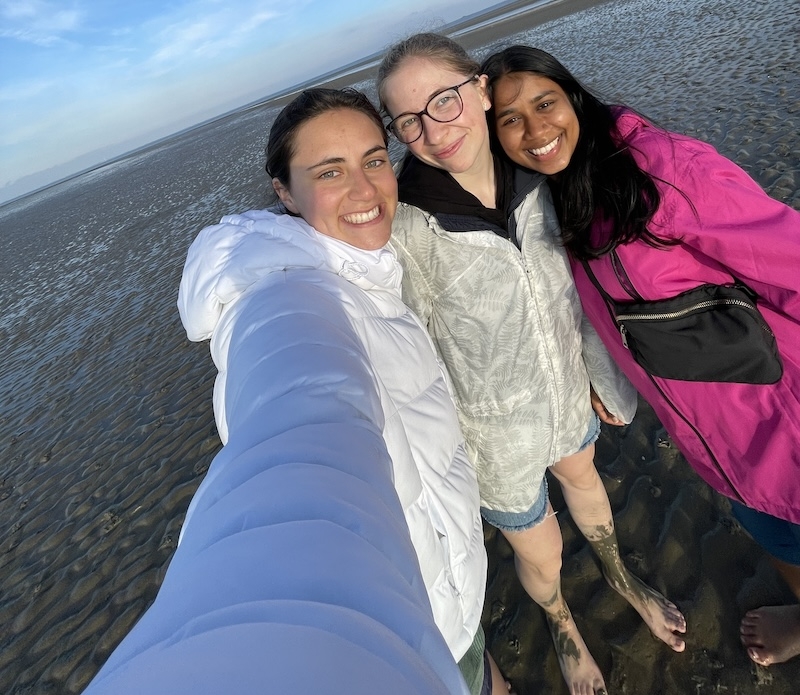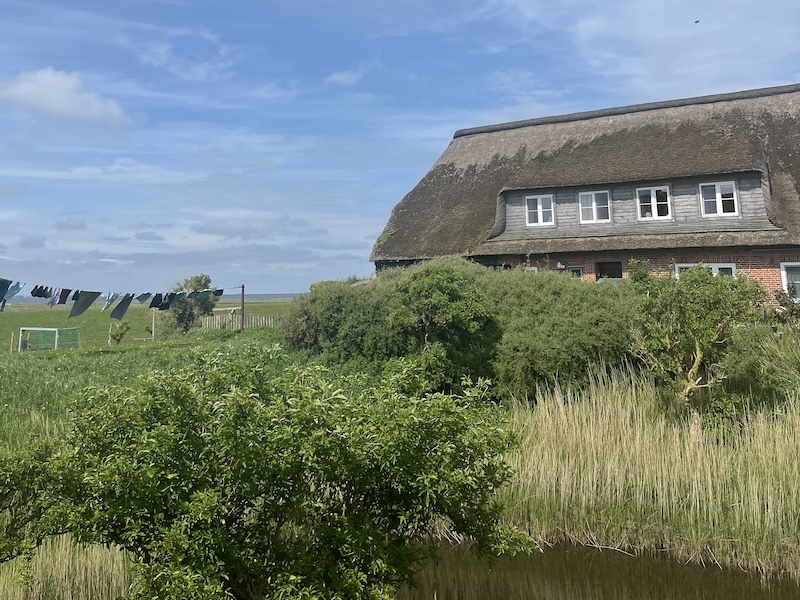
Pellworm: Sheep and Mud!
Almost all study abroad programs have one week off during the term for travel! Our Dartmouth program in Berlin decided to take us to Pellworm for two days, which is one of the North Frisian Islands off the coast of the North Sea in Germany. It is around 37 kilometres squared and only has 1,200 inhabitants. It has many sheep and cows and produces a lot of renewable energy!
The travel to Pellworm took a long time. We left Berlin around 8:30 am and only arrived at 3 pm. We took two trains, a bus, a ferry and another bus. I was amazed at how serene and peaceful the island was. We stayed at a hotel in Pellworm, where I was surprised to learn how extensive the tourist industry is. However, due to climate change, the island is facing many problems, primarily related to rising sea levels. We learned all about the challenges and potential solutions from the one and only doctor on the island!
After dinner, we headed to the Watt, a mudflat where the tide recedes. Our tour guides led us on a 2-hour mudflat hike! Despite having socks, some of us decided to explore the place barefoot, which I was soon having second thoughts about given the many worms, jellyfish, and snails we encountered. At some points, we even sunk to our knees! Thankfully we had guides, and we were not too worried about it.

The next day we visited a Hallig, which are tiny islands often flooded with the sea. The one we visited only had ten inhabitants, their houses protected by dikes, which is a small wall used to prevent flooding. The only other things we saw on the Hallig were a small souvenir stand and sheep! If I thought Pellworm was small, this was 100 times smaller.

Later that night we took a walk during sunset and watched a football match with our mudflat guides whom we had befriended! This entire excursion was fully funded by the Dartmouth study abroad program, except for the cost of lunch. Visiting Pellworm was truly a great experience to understand the lives of the people on these islands.













